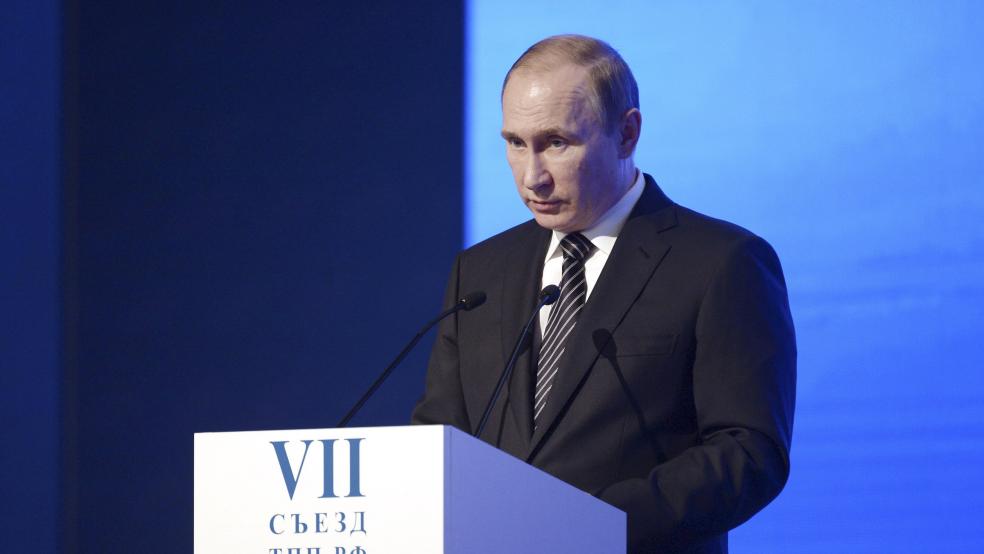Last week, the Kremlin took the unusual step of pre-emptively attacking a news story that was expected to reveal evidence of international corruption that comes very close to Russian President Vladimir Putin. As it turns out, Russian authorities needn’t have worried too much about news organizations around the world jumping on stories about his ties to suspicious transactions and shady business deals.
That isn’t because the massive report released over the weekend by the International Consortium of Investigative Journalists doesn’t have evidence of Putin’s friends and close associates enriching themselves through their connections, and sending untold millions to tax havens around the world. It does. In spades.
Related: Putin Plays Defense in Advance of Corruption Report
The report is so vast, and implicates so many world leaders, banks, law firms and celebrities, that the activities of any one group of people – including the friends and family of Vladimir Putin – make up only a small part.
The story, which involved some 370 journalists in 76 countries, was based on the leak of 40 years’ worth of records from the Panamanian law firm Mossack Fonseca. One of the most prolific creators of shell companies in the world’s many tax havens, the firm has some 500 employees in offices around the world. (“Shell companies,” in this sense, refers to firms where the identity of the “beneficial owner” is obscured.) It reveals a vast web of financial wrongdoing that enables criminals, corrupt politicians, royalty, and others to illicitly move vast sums of money around the world in contravention of anti-money laundering laws while simultaneously avoiding taxes.
John J. Byrne, the executive vice president of the Association of Certified Anti-Money Laundering Specialists, a respected trade group in the fields of both law enforcement and financial services, said the revelations from the ICIJ report will have worldwide repercussions.
“The information disclosed in this investigation will resonate throughout the entire global anti-money laundering community,” said Byrne. “We can expect major focus on reporting tax evasion, beneficial ownership and identifying all methods of disguising source of funds.”
Related: More Legal Trouble for Team Trump as Protesters File Suit
Mossack Fonseca has consistently denied involvement in any wrongdoing, according to the report. In response to accusations of facilitating illegal activity in the past, the company’s founders compared it to an auto manufacturer in the sense that Ford is not responsible if one of its cars is used in a bank robbery. In response to questions from ICIJ, a company spokesman said, “for 40 years Mossack Fonseca has operated beyond reproach … Our firm has never been accused or charged in connection with criminal wrongdoing.”
While the revelations from the report will have to be teased out over weeks, months, and years of follow-on reporting, one of the things many Americans may be surprised to learn from the coverage is that not all tax havens are located in sunny Caribbean islands. While the vast majority of the companies formed by Mossack Fonseca for its clients were in the British Virgin Islands, others crop up in more unexpected places, like Wyoming and Nevada.
Both Wyoming and Nevada have permissive state laws that make it possible to set up a shell company within their jurisdiction. Another US state that also allows for a greater degree of corporate secrecy is Delaware.
The report also found records indicating that 1,924 companies, including banks, law firms, and other middlemen that facilitate the creation of offshore companies for Mossack Fonseca operate in the United States.
Related: Here’s How Budget Cuts Have Hammered the IRS
To be clear, creating an offshore company is not illegal. Many of the companies created by the firm and its intermediaries, were undoubtedly used for perfectly legitimate purposes. However, the evidence uncovered by ICIJ appears to show that the firm knowingly and purposefully collaborated with clients in transactions that were plainly illegal.
ICIJ has promised a full data dump next month that will identify all of the companies that worked with Mossack Fonseca – something that is undoubtedly causing a lot of indigestion in boardrooms across the US and the world.





